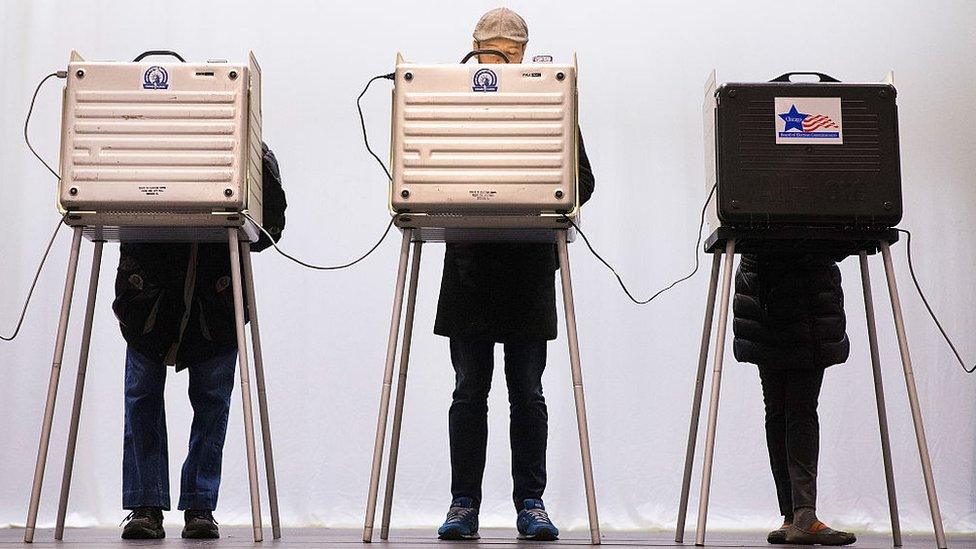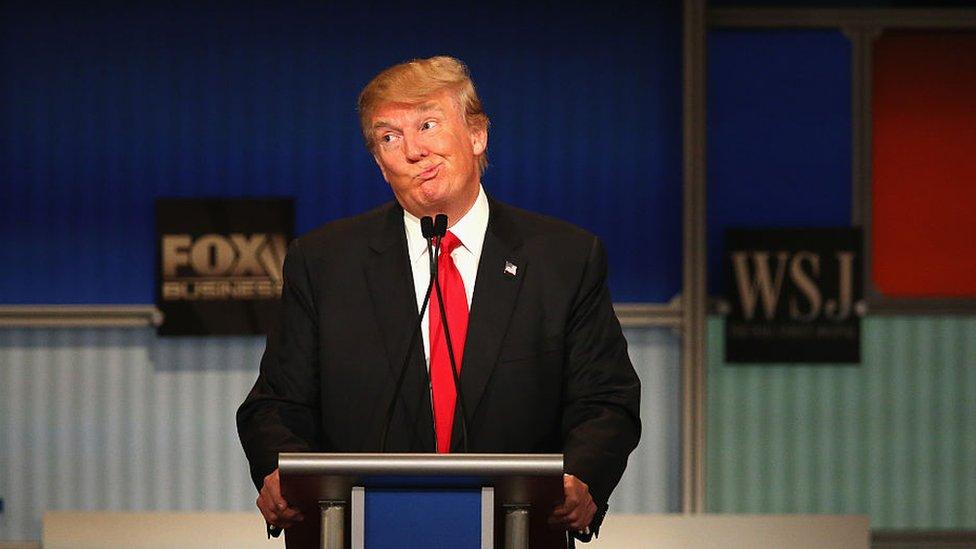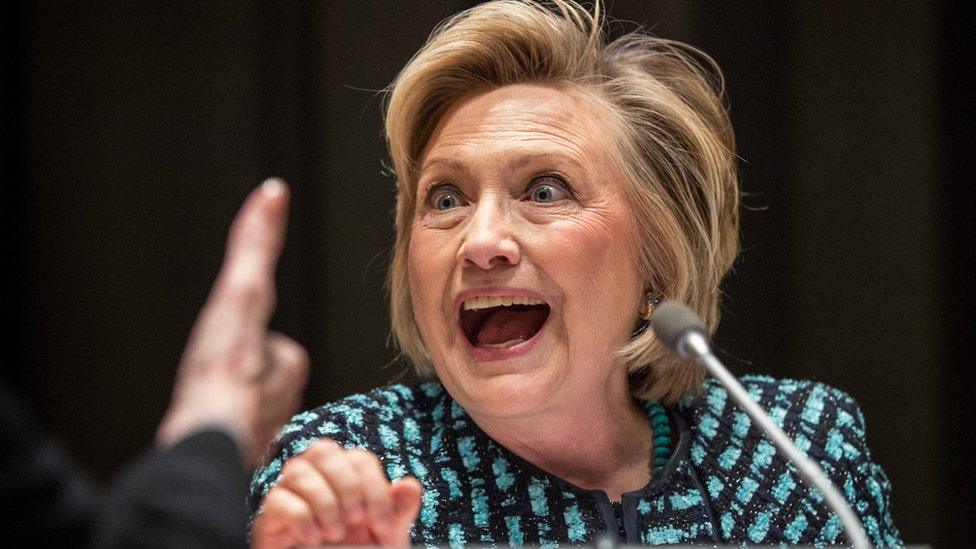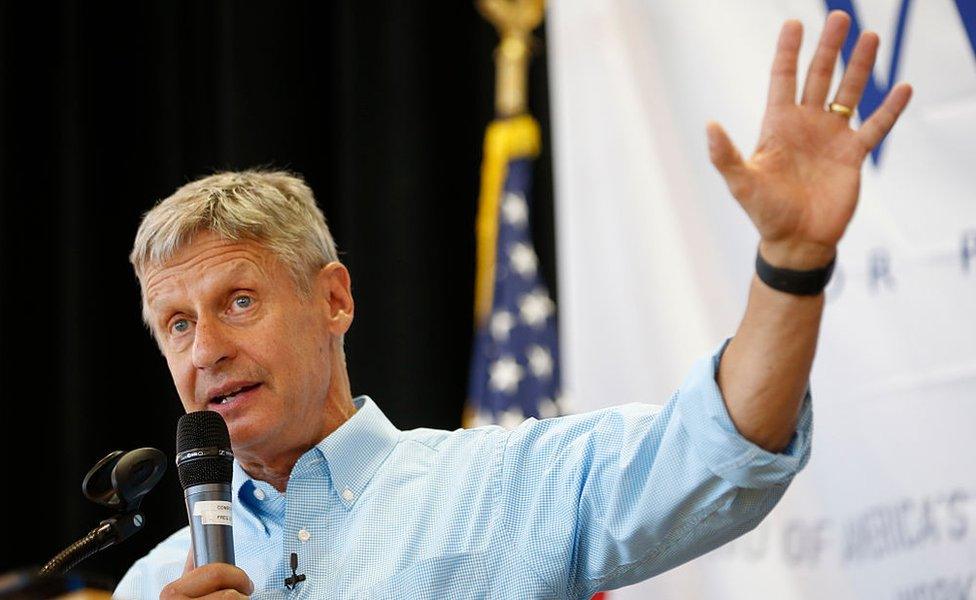US election 2016: A nerd's guide to the polls
- Published

"Warning!" boomed the voice in my aeroplane headphones. "This election contains adult content. Passengers should be advised."
"That's sensible," I thought. "Yes, they really should send out a warning. It's been shocking."
Then, I started to wonder why the entertainment system should take it upon itself to be moralising about a US election.
And then, it dawned on me that the voice in my ears had said "selection", not "election", as I'd landed on a naughty movie - or whatever passes for one on a daytime flight.
But the point remains that I was ready to agree with it.
Knots in the stomach for the coming week are of course largely excitement.
But a little bit of them is that kind of self-disgust sickness that comes after binge eating or watching too much cable-TV news.

I wish I could step away from all the US campaign polls - switch them all off, or at least mute them until I understood what they were actually saying.
But they sit there shouting at me, sometimes at 04:00 - until I check and try to sleep again.
If you're feeling the same, I may not offer you succour, but I do want to take you away from headline national polls for a moment and give you the ripples beneath the surface.
There are, as we know, 50 different ways of asking the same question.
The latest ABC poll on Tuesday (roughly 1,200 people, proportionately politically weighted) - gave Donald Trump a one-point lead.
If you allow for what they call a margin of error - ie getting things a bit wrong - it's a statistical tie.
But that's a national poll, which is a frustrating way to measure an election decided by its battleground states and the feelings of passion within them.
So look now at what happens when you dig down into voting intentions.

Mr Trump leads Hillary Clinton by eight points in the share of voters who are "very enthusiastic" about their choice.
I know what you're thinking - astonishing really that anyone is enthusiastic.
It is of course historically low for both of them - but comparatively, it's weakening more quickly for Mrs Clinton.
She has lost seven points since 20 October, when this tracking began.
In other words, those voting for Mr Trump are more excited to be doing so than those voting for Mrs Clinton.
It doesn't mean they won't vote for her.
But it might mean they don't rally all their friends and family to join them.
And here's where it gets interesting.
In states considered to be "strongly for Trump or leaning towards him", Mr Trump leads Mrs Clinton by a broad 60% to 34%.
But in the states considered to be "strongly for Clinton or leaning towards her" (and admittedly this poll gives her many more of those states), she only leads him by 54% to 37%.
In other words, in the places he is stronger he is much stronger, which may be shown in the popular vote - which counts for nothing in electoral maths but could still cause a big upheaval if it doesn't go the same way.
Critically, in the toss-up states (surprisingly, ABC designates only five - Arizona, Florida, North Carolina, Ohio and Utah) voters split 41% Mrs Clinton to 48% Mr Trump.
Stay with me - we're going to go one round more. And you need a clear head for this.
Mr Trump appears to be gaining ground with "those leaning towards Republican", and he has seen his standing improve among pure independents (who are affiliated to neither party) - although many of those will, of course, go on to pick a third-party candidate such as Gary Johnson or Jill Stein.
Among those who call themselves Democrat or Democratic-leaning, Mr Trump's support has gone from 5% to 9%. Mrs Clinton is supported by just 6% of Republican-leaning voters.

What about the wild cards - such as Gary Johnson or Jill Stein?
In other words, when we are looking at who might cross the party floor - and vote in a way they haven't done before - Mr Trump attracts more Democrats than Mrs Clinton does Republicans.
All the focus over the next six days will be on those who are undecided, which is why a poll like this has the ability to cause such ripples.
But a word of caution - this exact time four years ago, the same polling put Mitt Romney one point ahead of Barack Obama. He lost by four points.
They also put John Kerry one point ahead of George W Bush in 2004. He lost by three points.
Just tell me if you prefer me to wake you up.
Emily Maitlis is presenting BBC Newsnight's coverage of the US presidential election. You can follow her on Twitter, external, watch more of her reports, external, or read more from her on her blog.